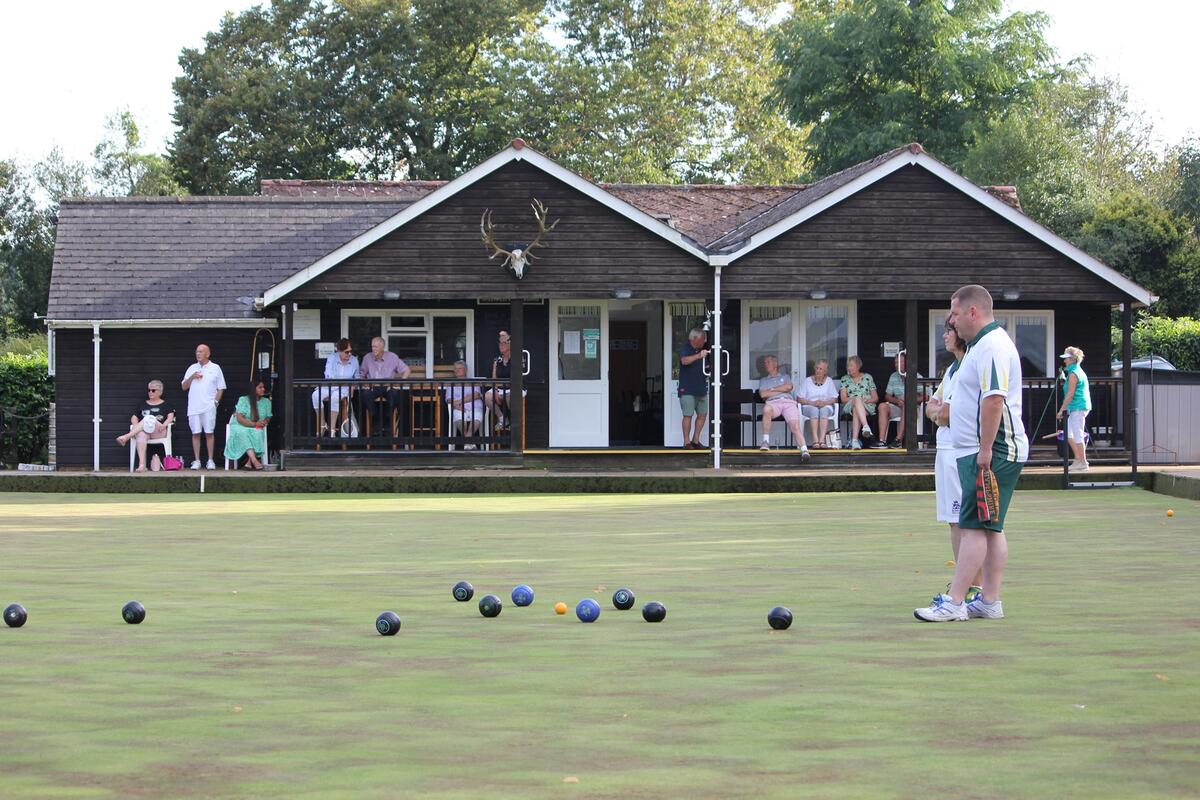History
The Early Days
The idea of forming a bowling club in Wonersh was first raised during the winter of 1925 by Dr Lewis Hawkes, who had recently moved into the village.
‘The idea came into my mind that there were men in the village too old for active games like cricket and football: why not try to start a Bowling Club’.
He organised a meeting to gauge interest and – just as important – began seeking out ‘public-spirited local benefactors’ who could help make his idea a reality.
First among these was John Courage, whose family had founded the Courage Brewery Company. He was known to be very generous in helping any scheme that brought benefit to Wonersh – and certainly proved so in this case, agreeing to donate large funds to prepare and landscape the land for the bowling green, buy essential machinery, and then provide all the funds to build the Clubhouse Pavilion. He would be appointed the Senior Founder President of Wonersh Bowling Club and remain involved with the club for many years until his death.
Three other benefactors were essential in getting the club up and running. Frank Rogerson owned land behind the Memorial Hall at the foot of Chinthurst Hill which was an ideal site for the bowling club – in the centre of the village but peaceful, with lovely rural views. He agreed to lease sufficient ground for three rinks to be constructed, at a nominal rent of 2/6d (12.5p) per year, but in fact, three years later, he then very generously made a gift of the freehold to the club, allowing Wonersh Bowling Club to own its land and property – an incredibly generous gesture. Robert Haslam, owner of nearby Wonersh Park, provided all the essential turf for the bowling green, and John Cook donated considerable funds to the club including all the furniture and fittings for the Clubhouse. These three gentlemen were made Founder Presidents in recognition of their work. Dr Hawkes took on the role of Club Secretary, and Wonersh Bowling Club was beginning to take shape.
This was to be a local Bowling Club, open initially to residents of the villages of Wonersh, Blackheath and Shamley Green. And, in a very forward-looking move for those times, it was agreed that ladies were to be eligible for membership! It was decided to keep the annual subscription as low as possible at 5/- (25p) per year, but it was hoped that members themselves would take the main responsibility, under the eye of a groundsman, for looking after the greens and the clubhouse. So Wonersh Bowling Club was open but, according to Dr Hawkes
‘not much play was possible during that summer of 1926 as the members had to learn the rules of the game and a good deal of rolling and mowing was required’.
For that first season in 1926, there were just 12 playing members of the club. Within two years the membership had reached 40, all enjoying regular play – though not yet with great success. It was reported that, out of a total of 34 matches played that summer, Wonersh won 10 and lost 24!
‘This may have been due to the fact that the Selection Committee in their wisdom, while choosing the strongest team for Cup matches, gave in Friendly matches, the weaker members a chance. The slogan on the Pavilion holds good: 'We want to win but are not ashamed to lose!’
But the records from then on show that it wasn’t long before the members began to master the game and the club began to flourish. Thanks to those benefactors, Wonersh Bowling Club was well established and here to stay.
And Now
Fast forward nearly 100 years. Our bowling club, now with six full-sized rinks, is still in the same lovely location and amongst the best lawn green bowling clubs in Surrey. We welcome members from a wide area of the county, of all ages and abilities – absolute beginners and experienced players alike. We enjoy competitive bowls at County and Club level, friendly matches with other clubs, many club competitions and fun, social bowling - something for everyone.
And it’s fair to say that we are more successful now than in that first playing season. We are currently, for example, reigning Division I Champions in the Three Counties Triples League. And we’re proud of Gill Platt, one of our lady members, who recently represented England at the World Bowls Championships in Australia.
Above all, we are a friendly, happy, and inclusive club, looking forward to celebrating our Centenary in 2026. The idea to set up Wonersh Bowling Club all those years ago has proved to be a good one!
